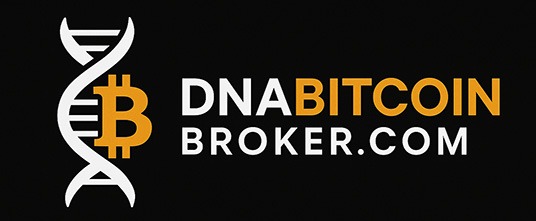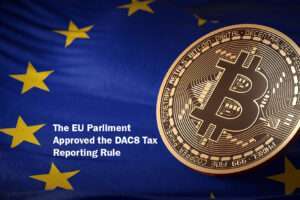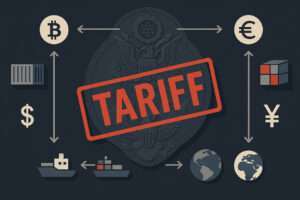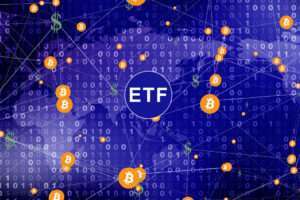“Gold protected wealth for 5,000 years. Bitcoin is doing it in real time.” – DNA Crypto Knowledge Base.
For millennia, gold was the ultimate store of value — tangible, scarce, and globally recognised.
But in 2025, the narrative is shifting.
As inflation persists, debt piles grow, and global markets fracture, investors are rebalancing between the old haven — gold — and the new one — Bitcoin.
The question is no longer “Which will survive?”
It’s the question that will define the next era of money.
Learn more: What Is Bitcoin and Why It Matters
The Golden Legacy: Trust Forged in Scarcity
Gold has anchored human value systems for over 5,000 years.
From ancient kingdoms to modern central banks, it has symbolised permanence and power.
In 2025, gold remains relevant — but not immune to modern pressures.
-
– Central banks now hold over 38,000 tonnes of gold, the highest reserves since the 1970s.
-
– China and Russia have increased their holdings to reduce U.S. dollar exposure.
-
– Gold ETFs globally manage over $220 billion, though growth has slowed since 2023.
While gold’s physical nature offers reassurance, its immobility and high storage costs make it less practical for an age where money moves at the speed of light.
Explore: Institutional Bitcoin Adoption
Bitcoin: The Digital Metal of the 21st Century
Seventeen years after its creation, Bitcoin has emerged as “digital gold” — a borderless, programmable asset built on mathematics instead of metallurgy.
In 2025, Bitcoin’s fundamentals speak louder than any headline:
-
– Market cap: $1.6 trillion (up 180% since early 2023)
-
– ETF inflows: Over $65 billion in the U.S. and Europe combined
-
– New issuance: Only 450 BTC/day after the April 2024 halving
-
– Institutional holdings: Over 14% of total supply now sits in fund and corporate treasuries
Bitcoin’s predictable scarcity — 21 million coins, forever — mirrors gold’s physical limit, but with exponential advantages: instant transferability, perfect divisibility, and verifiable transparency.
As gold stays locked in vaults, Bitcoin circulates across borders and blockchains, powering a new monetary network built on proof, not promise.
Explore: Bitcoin Market Dynamics
Macro Shifts: Why Institutions Are Choosing Bitcoin
The 2020s are reshaping the global store-of-value narrative.
Central banks are diversifying into gold — but private institutions are adopting Bitcoin.
Three major shifts define the 2025 landscape:
-
Yield and Liquidity: Gold earns nothing. Bitcoin can be yield-bearing via regulated on-chain finance and ETFs.
-
Transparency: Every Bitcoin can be verified on-chain. Gold ownership still relies on trust in custodians.
-
Accessibility: Bitcoin trades 24/7, across borders, with no intermediaries—gold moves by trucks and paperwork.
Even legacy giants like BlackRock, Fidelity, and BNY Mellon now hold Bitcoin in regulated ETFs and custody products.
The signal is clear: Bitcoin is not replacing gold — it’s modernising it.
Europe’s Edge: Regulation Meets Innovation
Europe’s Markets in Crypto-Assets (MiCA) regulation has transformed Bitcoin from a speculative instrument into a compliant institutional asset.
MiCA’s clear framework enables brokers like DNA Crypto to offer regulated Bitcoin trading, custody, and liquidity services, with full auditability.
This regulatory clarity gives Europe a first-mover advantage in building a dual reserve system — physical gold and digital Bitcoin — under a unified, transparent standard.
Learn more: DeFi and MiCA Regulation.
DNA Crypto: The Bridge Between Gold and Code
At DNA Crypto, we understand that the future of wealth isn’t about choosing sides — it’s about integration.
We help clients secure both forms of value — tangible and digital — through:
-
MiCA-pre-regulated Bitcoin brokerage and custody
-
– Cross-border liquidity services for tokenised gold and stable assets
-
– Advisory for institutions rebalancing portfolios into digital reserves
-
– Research and education for investors navigating the digital store-of-value revolution
Gold defined the past.
Bitcoin defines the future.
At DNA Crypto, we build the bridge between them.
The Bottom Line
Gold proved that scarcity creates trust.
Bitcoin proved that transparency creates truth.
Both assets share the same DNA — finite, global, and beyond government control — but only one was built for the digital age.
In 2025, investors aren’t asking whether Bitcoin will replace gold.
They’re asking how much Bitcoin belongs in their reserve strategy.
The answer?
Enough to ensure that when the old world loses trust, your wealth still holds value.
Image Source: Adobe Stock
Disclaimer: This article is for informational purposes only and does not constitute legal, tax, or investment advice.












